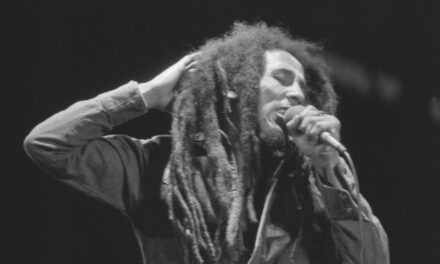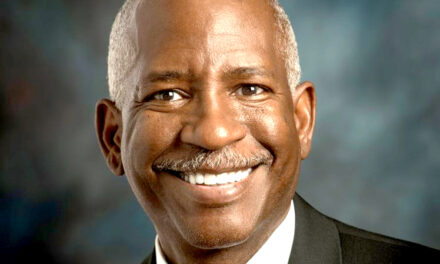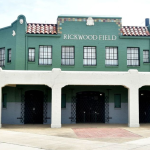By Andrellos Mitchell,
Special to the AFRO
Rarely a day goes by without a news story about the behavior of American judges. These stories tend to focus on their courtroom behavior and alleged bias in high-profile cases.
For example, Judge Aileen Cannon is accused by the left of showing bias in favor of Donald Trump in his classified documents case. Meanwhile, the former president and his supporters have railed against Judge Tanya Chutkan, who is overseeing the federal case charging him with illegally conspiring to subvert the 2020 election results. Rep. Elise Stefanik, the House GOP conference chair, has filed a judicial ethics complaint against Judge Arthur Engoron accusing him of bias against Trump in his New York fraud case and calling on the judge to recuse himself.
Although much of what is playing out in the media today in the Trump cases are political moves by the litigants, their lawyers and their supporters, in truth, judges are in fact more biased in non-high-profile legal cases on a daily basis than the average American is aware of.
To begin with, judges are human beings that have all of the human frailties that ordinary people have. They can be temperamental, petty, envious, angry, apathetic, unserious, emotional, biased, etc.
A judge is just a lawyer who has been elevated to the position of judgeship either by election or appointment. Many of the appointments are made specifically for affirmative action reasons. Unlike in the old days, a judge does not have to be a great lawyer before he or she can become a judge. It’s mostly politics now. Every judge on the bench wants you to believe that he was the F. Lee Bailey, Johnny Cochran or Alan Dershowitz of his time, and that she is so much above those standing before the bench.
Don’t fall for it.
In most cases, judges are just ordinary people like you and me who were given an opportunity in their profession. The truth is, they should show more humility, gratitude and grace rather than arrogance, aloofness and insensitivity toward those they serve in the public.
If you get away from the big cases in the media, you will find judges that are biased–perhaps not for political reasons, but for other reasons, such as gender, race, sexuality, age, elitism, class, background, etc. I have seen bias in favor of government lawyers, bias against solo lawyers, and bias in favor of lawyers at big law firms. Yes, it all happens. One of the most common forms of bias in courts is against minority lawyers, especially Black male lawyers. The legal profession is still primarily dominated by White people, and they really don’t want to see Blacks and other minorities of color in the courtrooms. For the record, minority judges can also be biased.
The bias against minority lawyers is very disheartening when you consider the fact that most people who earn law degrees and pass the bar exam never set foot inside of a courtroom. That is especially true for minorities of color. You would think that the dearth of minorities in the legal profession would encourage the profession to do more about bias. However, I believe the lack of effort to control bias in the courts is all a part of a much grander scheme to discourage minorities from engaging in the practice of law.
In the old days, they wanted to prevent minorities and women from entering law school. If they made it into law school and graduated, well they still had to pass the bar exam. An exam that has been changed at least twice since I graduated in 1993. They are always moving the goalpost.
You’re probably asking yourself, “How do I know when there is bias?” Just ask yourself: Is the judge treating everyone in the process fairly? Also, be aware of the fact that judges will often try to hide behind the rules when they are being biased. They will allege they are not being biased, but instead, they are treating you differently because you are not following the rules. Just remember this: a judge can always come up with a justification as to why he or she is treating you differently or why they ruled a certain way in your case. That’s one of the reasons why we have appellate courts.
So, what do you do when you encounter bias in the courtroom? Do you just take it? Many lawyers say if you challenge the judge, you will just make matters worse for you and your client. Yes, judges do retaliate and so do their colleagues. Word gets around. Some lawyers are going to be mad that I even wrote this article, but that’s life. In most cases, those are the cowards, and they are probably not engaged in the long-term practice of law anyway, especially as litigation and/or trial lawyers. I have no time for cowards.
So, you have to ask yourself, is it worth it to confront the judge for his/her bias? The answer to that question should always be yes. Otherwise, why did you become a lawyer? To be afraid of people in authority? The practice of law is not for the timid, especially for minorities of color and women. Attorney Alina Habba is right. Most lawyers don’t have a camera or microphone they can use to expose bad judges. However, that shouldn’t stop us from standing up to them. Get your complaint on the record in court, file a complaint against the judge, go to the media. Do whatever you have to do to fight judicial bias. Stand up and fight…or get out of the profession.
Andrellos Mitchell is a practicing attorney in Washington, D.C. with a federal law practice in Maryland. He has a passion for focusing on freedom of speech and other constitutional law issues. He can be contacted at apexlegalcounsel@aol.com.
The post Commentary: When judicial bias is prevalent – what can a lawyer do? appeared first on AFRO American Newspapers .











